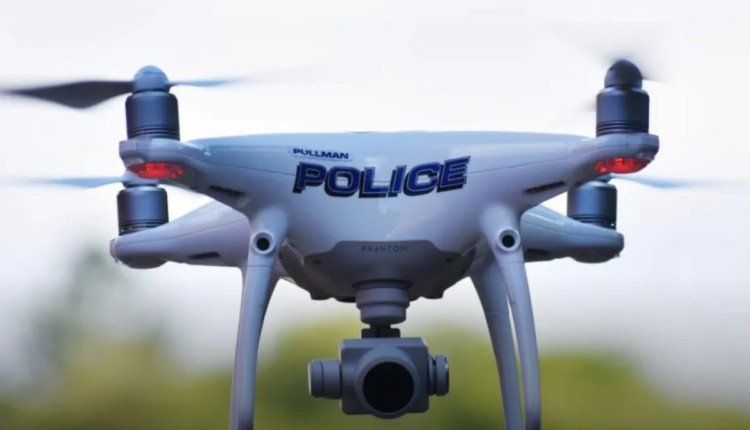A new presence takes flight in the American skies. Police drones have become increasingly prevalent in cities nationwide, offering law enforcement agencies a new tool for maintaining public safety. However, deploying these aerial assistants has sparked a contentious debate, with contrasting opinions on their benefits and potential drawbacks. This article explores the growing role of police drones in American cities, weighing their advantages as a “de-escalation strategy” against concerns over surveillance and privacy infringement.
Enhancing Law Enforcement: Proponents of police drones argue that they serve as a valuable addition to the arsenal of law enforcement agencies. By providing an aerial perspective, drones enable officers to assess situations swiftly, gather vital information, and respond more effectively. Lieutenant Abrem Ayana from Georgia attests that these unmanned aerial devices eliminate much of the guesswork associated with traditional policing, enhancing officer safety and public protection.
De-escalation and Accountability: Drones allow law enforcement to adopt a de-escalation strategy. With their ability to monitor and record encounters, drones can ensure transparency and accountability during interactions between officers and civilians. This additional layer of oversight helps reduce the use of excessive force and establish trust within communities.
Civil Liberties Concerns: However, critics of police drones raise valid concerns about the encroachment of surveillance and potential erosion of civil liberties. The prospect of constant aerial surveillance paints a dystopian picture for privacy advocates. Striking a balance between effective policing and safeguarding individual rights becomes paramount.

